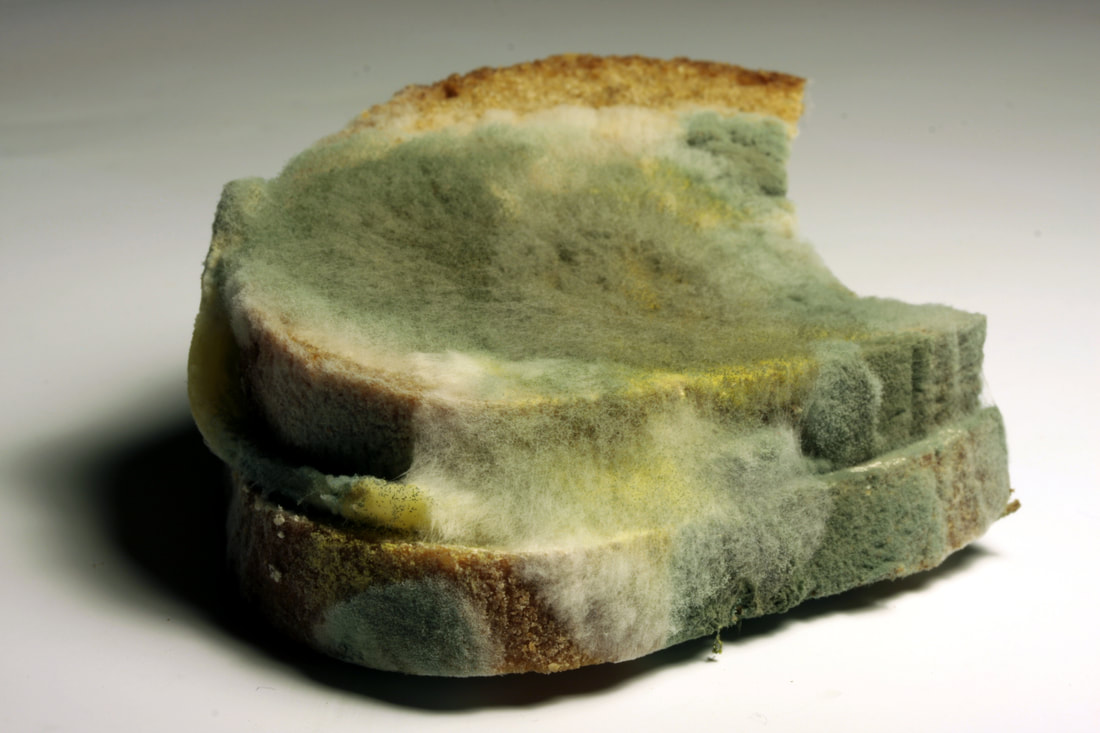Mold and You!

It can be a bit moist here in the Pacific Northwest. Seattle gets an average of 39 inches of rain per year and stays fairly humid throughout the year. Last winter, the Emerald city got 45 inches of rain. This means that at some point, mold is going to be a problem. However, mold is not to be feared. Mold is the reason we aren't all drowning in plant matter and dead trees. Mold is incredibly beneficial to our environment. However, it's not beneficial in your rental.
Tenants fear mold because of the publically reported cases of "sick buildings" that due to their design and other factors created conditions where the occupants became sick and could never recover. Mold does cause allergic reactions in people with weak immune systems or who have developed a sensitivity to mold. When a tenant reports visible mold, sometimes tenants can make it sound far worse than it actually is and complaining about personal medical things that have nothing to do with mold. Many tenants won't even deal with mold despite the fact it can be cleaned with vinegar and bleaching water with a rag quite easily.
As the property owner, you have to take mold seriously. People have won multi-million dollar lawsuits for sick buildings and the resulting health problems that range from asthma to rashes and chronic fatigue. Mold is something a landlord has to keep an eye on.
In Washington, you are required to give your tenants Mold Handout at the beginning of a new lease. We also recommend that you add Mold Addendum to your lease which makes cleaning mold and mold mitigation apart of the lease. If you have to mitigate mold you can send the tenant the bill if they directly caused the mold. If the mold is simply in your building due to age or other factors than it is maintenance.
Mold usually grows in places with poor airflow and lots of moisture. It can also grow if the rental is kept too cold. Bathrooms and closets are usually the worst offenders although furniture close to walls may also be a culprit.
Mold can also thrive in places with any leaky plumbing. One of the best ways to make sure that you don't have mold is to make sure that all your plumbing is in order and encourage your tenants to call you right away with any water problems. Remind the tenants to keep the heat at a minimum of 68 degrees and to use the bathroom fan to encourage ventilation during showers and to open the windows from time to time to keep ventilation moving.
For places where air flow is difficult to get, a de-humidifier is a great addition to any home. Moving furniture away from walls is a great way to reduce the chances for mold. Also, remind tenants not to stuff closets or corners with items.
You can also give tenants the EPA mold handout which goes over methods to reduce the chances of mold growth in our rainy Seattle climate.
Resolving a mold problem is straightforward:
Fix the problem by solving the leak, moving the items, or improving the ventilation of the area
Clean the mold (wear a mask and gloves) with bleaching water and a cloth.
Toss any porous items (wash clothing, bedding, etc) into the garbage. Ceiling tiles, carpet, or other things can't always be saved.
Work with your tenants and you should be able to keep your rentals mold free!

